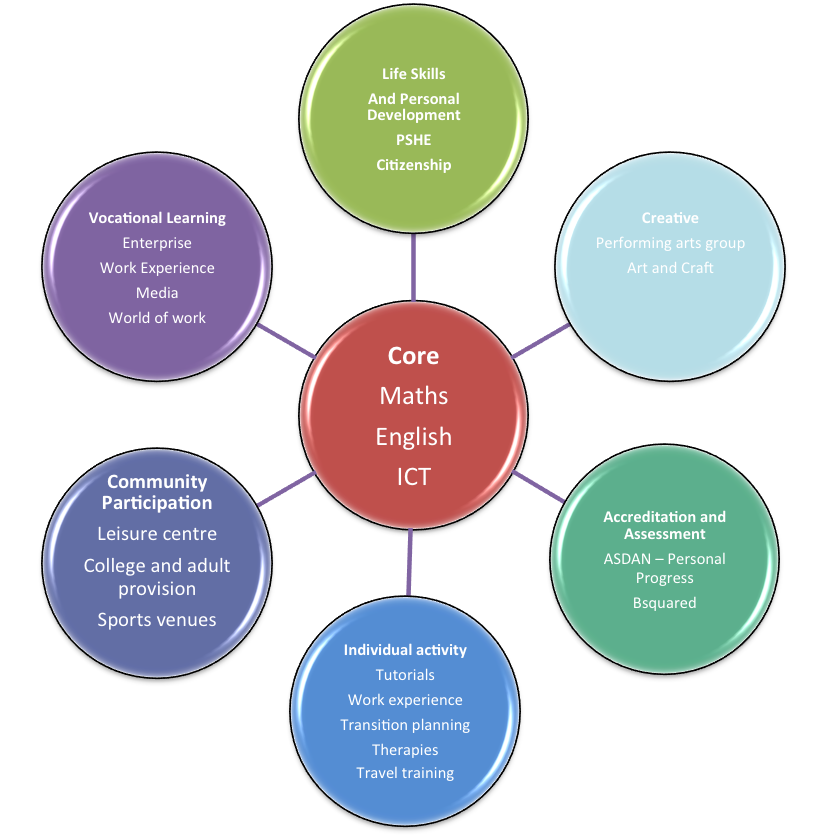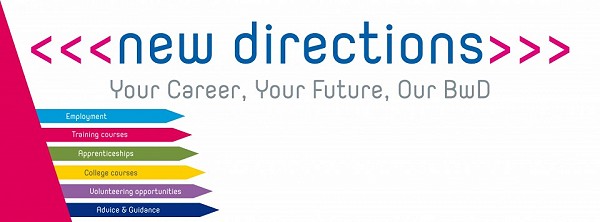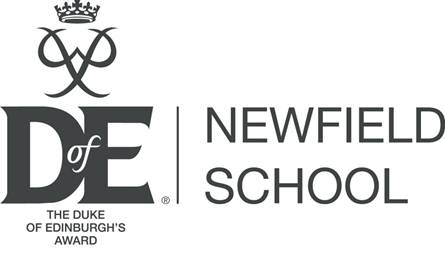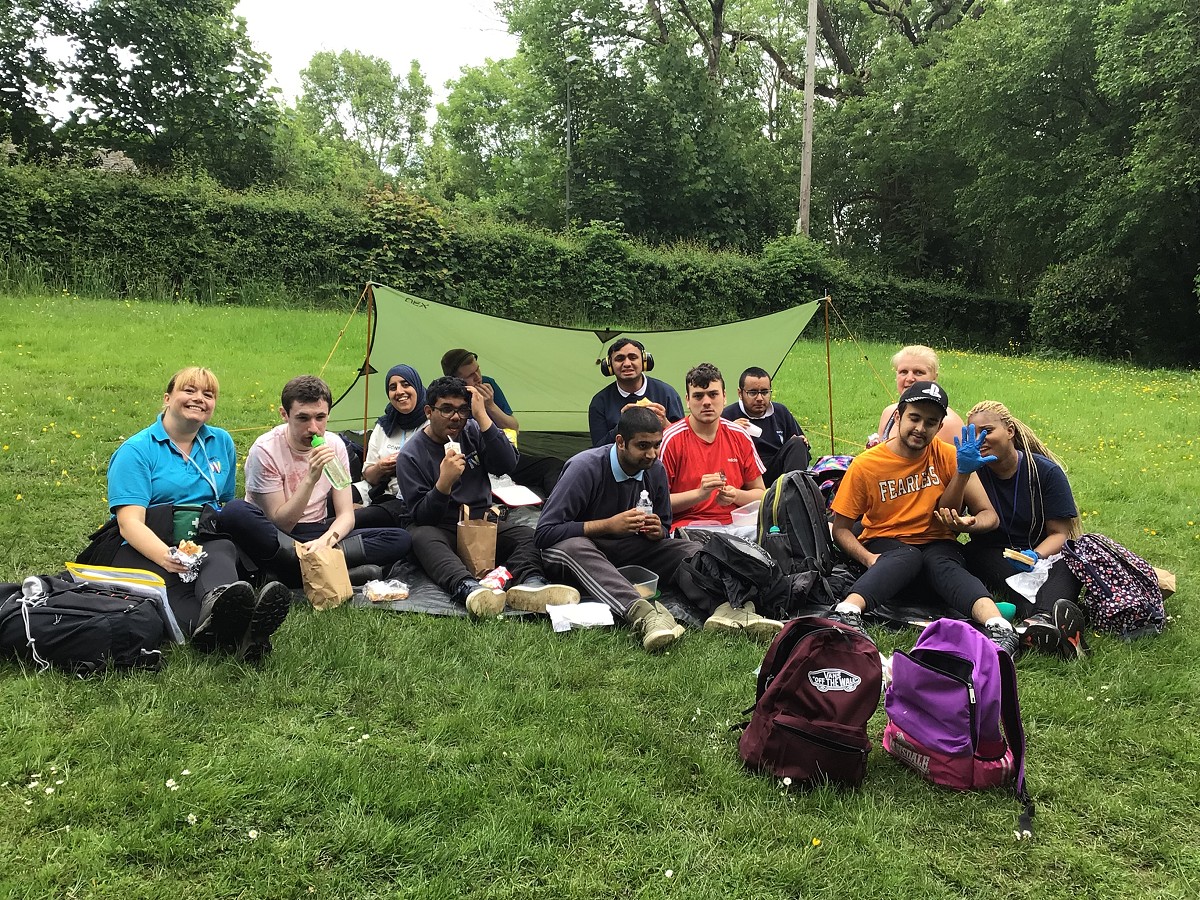Post 16
As students enter the 16-19 phase of school, they follow a curriculum designed to help them transition successfully into adult life. We aim for our young people to be actively involved within the local community and to be as happy, confident and independent as possible.
Students are grouped according to their age and all are able to work towards ASDAN or Edexcel qualifications that recognise their individual achievements. Learning opportunities are designed to be relevant and meaningful for each learner, whilst helping to prepare them for adult life. Students have increased opportunities to take part in activities within the community setting and also to develop links with adult colleges and other services.
Overview
Key Stage 5 (Years 12, 13 and 14)
In addition to the bespoke pathway the learner has followed throughout school, in the Post 16 provision learners are offered a broad range of learning experiences designed to promote their personal development and aid them to make a smooth and well-equipped transition into adult life.
The core curriculum is based around 4 key areas:
- Independent living skills
- Work related learning
- Personal, social and emotional development
- Community Participation
- Independent Living Skills
It is important that when our students leave Newfield, that they are as independent as possible. Personalised learning activities help students to develop skills in key areas such as communication, personal care, shopping, cooking and travel training.
Work Related Learning
Students take part in a range of mini-enterprise activities within school, which may include running a café and making items to sell at enterprise events in school and at Blackburn Market or the annual Christmas Fair. They also participate in a range of creative activities to learn about different job roles. In addition, students have the opportunity to engage in work experience activities within the community, e.g. working on a local farm.
Personal, Social and Emotional Development
Students continue to develop the skills to enable them to engage positively with others – particularly new people in community settings/adult services. They are encouraged to make choices and to express preferences about activities and experiences.
Community Participation
Students have the opportunity to access a range of activities within the local community – including shopping, swimming, going to the gym, visiting the park or café. They also participate in activities with some post 19 providers in order to help prepare for their transition to adult services.
As well as these core activities, our students also engage in a range of enrichment activities.
These include:
- Creative activities – dance, music, drama, art, design and technology
- Therapies – physiotherapy, speech and language, sensory integration
- Sensory experiences
- Access to sex and relationships education
- Access to counselling
- Whole school events
All classes have a daily act of collective worship.
Some students may be entitled to financial support - see information regarding 16-19 Bursary.

Here is our Post 16 Scheme of Work
All of our Post 16 Students study Asdan’s units in Personal Progress with the aim of securing a diploma by the end of Year 14. Some of our students may additionally study for Entry Level qualifications.
See our Assessment and Accreditation section for more information.
Independent Living
Students are provided with opportunities to develop their independence through practical life skills such as shopping, travelling in the community and preparing their own meals. They also have the opportunity to participate in work experience if appropriate, as well as the Duke of Edinburgh Awards scheme.
Within the Post 16 provision Independence Skills are a fundamental aspect of our curriculum. It is not a stand-alone subject but rather something that is incorporated throughout the day with a specific focus being given via curriculum themes delivered half termly throughout the year.
An example is shown below:

Very often, this area of learning and development fits within a learner’s key skill development related to their EHCP. Independence is unique to each individual and it is the teacher’s job to identify barriers to independence and to try to remove these to enable each pupil to display as much independence as is possible.
Our school motto of ‘We never do for a student something they can, could or should do for themselves’ underpins this area of development and all staff fully embrace the ethos of creating an environment in which all learners can achieve their potential.
Developing independent learning is not our only focus in this area of development. Dependent on individual need, our learners may be working towards becoming more independent in:
- Managing their own self care
- Moving with independence
- Eating and drinking i.e. feeding themselves their own dinner/ holding their own cup
- Dressing
- Organising themselves for familiar activities
- Following routines with less adult support
- Handling money
- Some of our learners may access specific programmes/activities to support development of independence e.g. Toileting programmes, Travel Training
- College courses
- Work placement
Good Health
As students transition into adulthood it is essential that they have an understanding of what makes a healthy lifestyle. They learn about e-safety, personal safety, sex education and how to form positive relationships. These aspects are embedded into the themes with the Scheme of Work.
Students also access sports and leisure activities within the community to enable them to develop an understanding of how they can keep themselves fit and healthy as they enter adulthood whilst allowing them to develop new hobbies interests.
Students may participate in swimming sessions either in the school hydrotherapy pool or at the local leisure centre as part of a group depending on their ability.
Good Mental Health is also considered and prioritised under this aspect of the curriculum and students are given opportunities to develop an understanding of the activities that look after their mental health and improve their well-being e.g. exercise, yoga, relaxation, social activities, mindfulness, Zones of Regulation.
Community Participation
In preparing for adulthood students learn that they are part of the school community but also that they are a part of the local, national and international community too.
They develop skills to keep themselves safe as they transition into adulthood by learning to travel by foot and on public transport. Students, regardless of need, are given the opportunity to participate in the community and taught how to do this safely, appropriate to their understanding. This learning is then applied to the daily life of the Post 16 as students access the community and meet the people within it, understanding that they are a part of the wider world and how to care for their environment.
Students access a range of community activities and venues:
- Allotment
- Farm
- Youth Zone
- Leisure Centre
- Gym
- Café
- Shops
- Library
- Train Station
- Town Centre
- Local bus
- Post Office
Employment (Work Related Learning) and Careers
Preparedness for work related learning begins in Year 7 and builds as students enter the Post 16 phase of their education. It is important that students are aware of the positive options that they have available to them and their future and we work alongside Careers Advice Service New Directions to help students identify the next steps after Newfield.
The Post 16 Scheme of work uses work related learning opportunities across the curriculum arising from seasonal and local events to give students the experience of applying their skills in work-related contexts and situations. Communication is central to this focus and students work on team work, health and safety and problem solving in order to promote this.
An example of Employment/ Work-related areas may be:
- Identifying what they are good at and what they would like to do
- Running a mini-enterprise project
- Raising money for charity
- Understanding the clothes and equipment needed for specific jobs
- Particpating in jobs in the local area
- Work experience
- Gardening and horticulture
- Developing problem-soling skills
Careers and Transition
Students in Y14 meet regularly with one of our HLTAs to develop a Person Centred Plan – identifying the activities they enjoy and what their hopes are for the future.
These plans are shared with any future services to help students to transition smoothly.

New Directions also attend reviews in Y9, Y11 and Y14 in order to support students and their families with the transition process.
New Directions are able to share information about different services and will support families to visit colleges and other adult services.
Once a suitable provision has been identified, students are supported to engage in transition visits to prepare them for moving on to a new setting.
Duke of Edinburgh Award

Duke of Edinburgh Bronze Award
We offer the Duke of Edinburgh Bronze Award to our Post 16 students. The award is designed to challenge both their physical abilities and also their independence skills. Throughout the year the Bronze level students have weekly lessons to gain the experience required to complete all sections of the award.
There are 4 sections that the students have to complete in order to pass the award, these are;
- Physical
- Skills
- Volunteering
- Expedition
All of the bronze award is carried out in school including the volunteering with two sections lasting 3 months and one section lasting 6 months.
Physical – Students have the opportunity to develop their physical skills through a range of activities, for example building up their stamins by regular hiking or developing their movement skills by exploring the outdoor learning environment
Skills – Each student learns a new skill or strengthens an already existing skill. For the bronze level award, we use cooking and swimming as part of their skill development, we have also had a musician visit weekly to give lessons on developing the skills to play an instrument with independence
Volunteering – Volunteering takes a variety of forms according to students interests and abilities. They may volunteer in school to undertake projects to improve the school environment or they may help in the local community e.g. litter picking or painting fences at the community allotment.
Expedition – In order to complete their award, the students must complete an expedition. We develop this according to the needs of the students but they have the opportunity to develop their skills in:
- Pitching their tents
- Cooking on the stoves
- Making their beds
- Following route cards
Duke of Edinburgh Silver Award
The Duke of Edinburgh Silver Award is the next level challenge for our students. The silver award is designed to extend each students knowledge about the great outdoors and also develop new and existing skills along the way. The silver award is an extension of the bronze award.
There are 4 sections that the students have to complete in order to pass the award, these are;
- Physical
- Skills
- Volunteering
- Expedition
The students have to undertake a physical challenge, learn a new skill and complete their volunteering over a 6-month period.

16 –19 Bursary
The government introduced a fund in September 2011 to help pupils facing financial hardship to stay in full time education which replaced both the Education Maintenance Allowance (EMA) and 16+ awards.
The money is intended for books, meals, transport or other course-related costs needed to help a pupil stay in education.
Please look in our Policies section for the 16-19 Bursary Policy.